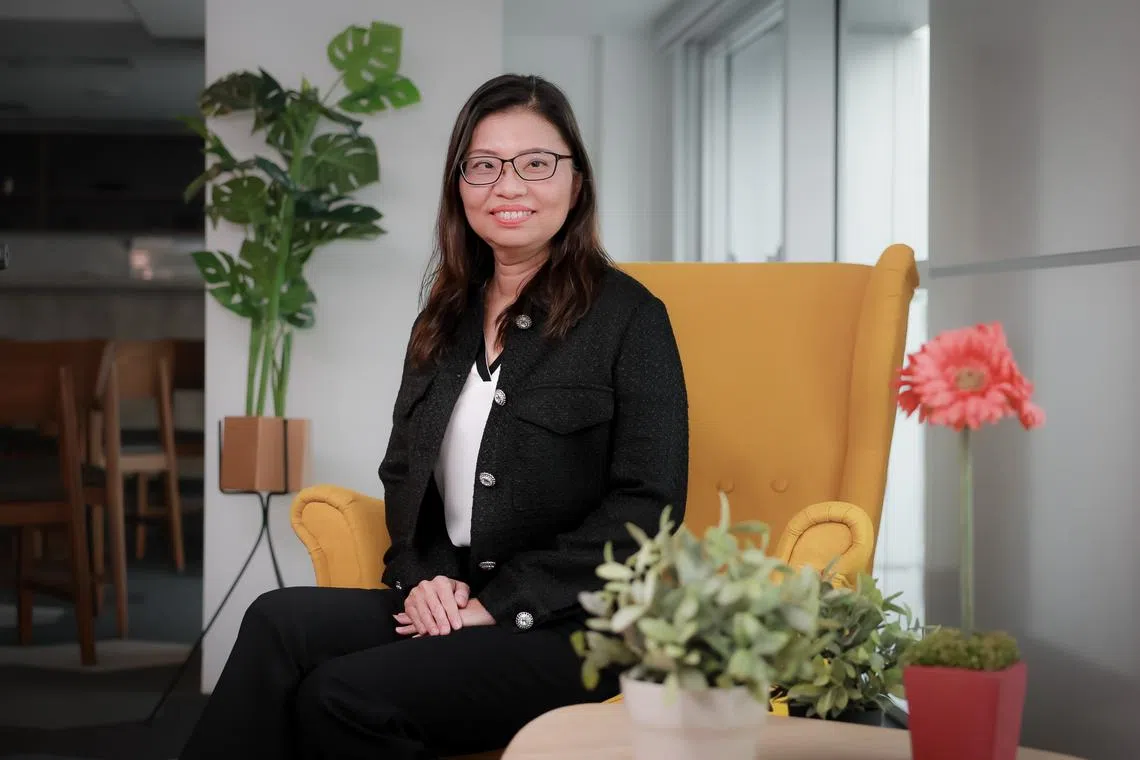Women in politics: A family affair for PSP chief Hazel Poa
Sign up now: Get ST's newsletters delivered to your inbox

Ms Hazel Poa said that while politics is demanding, making it work was ultimately about balancing priorities.
ST PHOTO: GAVIN FOO
Follow topic:
SINGAPORE - When Progress Singapore Party (PSP) chief Hazel Poa joined politics in 2009, her husband Tony Tan was in “no position” to stop her, she said.
After all, he was the one who had first taken the plunge.
Ms Poa had always felt that Singapore needed a stronger opposition to give voters alternatives to the ruling People’s Action Party, she said.
Her husband’s experience with the Reform Party made her realise that opposition parties were rather small and needed a lot of help.
“That’s when I decided that, yes, I’m also going to step in,” she told The Straits Times.
The couple, both former government scholarship holders and public servants, first joined the Reform Party, but resigned in 2011 due to disagreements with its leaders.
They then joined the National Solidarity Party (NSP) and were fielded as candidates in Chua Chu Kang GRC in the election that year.
Asked about running for Parliament alongside Mr Tan, Ms Poa said: “We’ve always kind of done a lot of things together... It’s just a very natural extension of what we have been doing all along.”
The duo, both 54, met as students at Cambridge University. They studied and cooked together, then got married and went into an education-related business together.
“It helps to have another person who is always there to support. And politics can be quite demanding sometimes,” said Ms Poa.
She quit NSP in 2015 and took a hiatus from politics. In 2019, she joined the PSP and was made a Non-Constituency MP after the general election (GE) the following year. In 2024, she was appointed the party’s secretary-general.
Ms Poa said she has heard comments that it is “not so good” for a political party to have a female leader.
“But my approach (to such comments) has always been to just ignore, continue doing things the same way without getting affected,” she added.
Ms Poa observed that women who join the party often do so only with the support of their spouse, unlike the men, who would often just go ahead with it.
“So we have to find out who the husband is, what are their family circumstances, and then try to also engage (him), if necessary,” she added.
Even with Mr Tan’s support, it was challenging for Ms Poa when she first entered the political fray. Having to juggle parenting, politics and their business was “really very taxing”, she said. Their children were aged five and six at that time.
But it was also parenthood that made the couple feel more strongly about making Singapore’s political system “more balanced”.
“When you become a parent, your time horizon suddenly extends much further. Previously, if it’s just yourself, you think about your own lifetime, what you want to do, where you want to be, but when you have children, you kind of think a bit longer term. What will happen to them when they grow up, and things like that,” she said.
When Ms Poa joined the PSP, it was a deliberate decision that Mr Tan would sit out, she added.
“We decided that it would be too tiring for us both to join and contest the GE together, and that it is better that one of us focuses on our business and the other one joins politics,” she said.
She added that Mr Tan still has a passion for politics, and may join again one day when their business is more established.
While politics is demanding, making it work is ultimately about balancing priorities, she said.
“Decide what is most important to you, and don’t try to be Superman or Superwoman,” Ms Poa added. “And decide that certain things – you just have to let go.”
Tham Yuen-C is senior political correspondent at The Straits Times, where she covers news about local politics.


